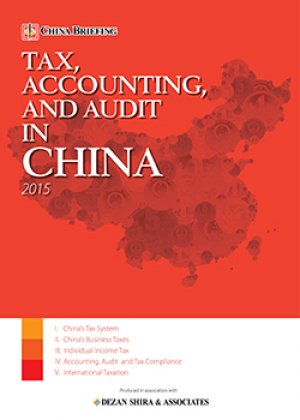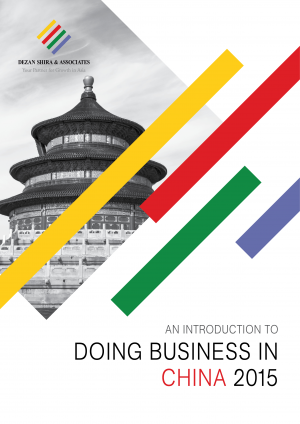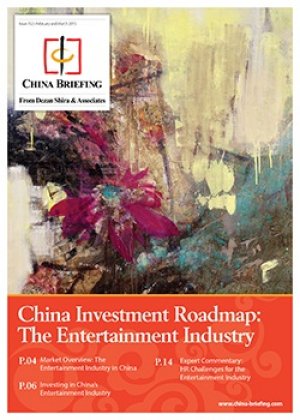Investing in China’s Entertainment and Media Market – Lifted Restrictions and Tax Incentives
 By Dezan Shira & Associates
By Dezan Shira & Associates
Editor: Jake Liddle
In the past, China’s entertainment industry has been marked by significant restriction, and has been relatively closed to outside influence and investment. However, recently there have been signs of relaxing restriction or improvements to the industry.
A clear example of this can seen in a draft that was passed on October 30, which announced the cancellation of filmmaking licenses and general screenplay enquiries; banned advertisements during screenings; and banned entities without a film release permit to attend film festivals and exhibitions. Such regulation changes and incentives are charged with gradually opening the industry to foreign investment.
According to the latest release of Cai shui [2014] No. 84 and 85, cultural enterprises’ CIT (corporate income tax), VAT (value-added tax), and import and export tax are eligible for tax incentives. Though primarily restricted as stipulated in the Catalogue of Industries for Guiding Foreign Investment, the following industries are accessible to foreign investors in conjunction with Chinese controlling shareholders and joint ventures.
High-tech Cultural Enterprises
From January 1 2014 to December 31 2018, cultural enterprises engaging in the field of cultural support technology and identified as high-tech enterprises are eligible for a CIT Reduced rate of 15 percent plus deduction.
Outsourced Entertainment Services
From January 1 2014 to December 31 2018, outsourced entertainment service enterprises in State Council approved model cities are eligible for a reduced rate of 15 percent on CIT and a further tax deduction on training expenses.
Publications and Publishing Sector
From January 1 2013 to December 31 2017, CCP publications, publications for primary and secondary school students, for the elderly, for ethnic minorities, braille publications and publications wholesaled by registered publishing companies in the five autonomous regions of Inner Mongolia, Guangxi, Tibet, Ningxia and Xinjiang qualify for a 100 percent VAT rebate. Other book, journal, audio or digital publications exempt from the above list are eligible for 50 percent VAT rebate. From January 1 2013 to December 31 2017, manufacturing expenditure for publications printed in ethnic minority scripts or languages qualify for a 100 percent VAT rebate. From January 1 2013 to December 31 2017, wholesale and retail of books is VAT exempt.
 RELATED: Tax and Compliance Services from Dezan Shira & Associates
RELATED: Tax and Compliance Services from Dezan Shira & Associates
Film Distribution and Screenings
From January 1 2014 to December 31 2018, income from producing, distributing and screening of central, provincial, municipal and county level news publishing radio and television administration departments is exempt from VAT. From January 1 2013 to December 31 2017, animation companies selling their own produced and developed animation software may enjoy a VAT rebate if the VAT burden surpasses 3 percent.
Cable Television Fees
From January 1 2014 to December 31 2016, cable and digital viewing and maintenance fees received by broadcasting service enterprises are exempt from VAT.
Export Sector
As of December 1, 2015, the export of production and distribution services of radio, film and TV programs provided by Chinese companies or individuals to overseas companies shall enjoy a zero-rated VAT.
From January 1 2014 to December 31 2018, cultural service exports encouraged by the state which are included in the scope of VAT qualify for exemption or zero rate. From January 1 2013 to December 31 2017, exports of animation software are VAT exempt.
Import Sector
From January 2014 to December 31 2018, equipment and spare components which must be imported in order to enable enterprises to undertake cultural industry projects encouraged by the state within regulation are exempt from import duties. Necessary imported goods for development and production of independent animation firms are exempt from import duties and are subject to the import sector’s VAT incentives.
Restrictions and Opportunities for Investors
Though some of the above mentioned sectors are largely restricted to foreign investment according to the Catalogue of Industries for Guiding Foreign Investment, some areas, such as printing and film industries, are encouraged by the state as long as a Chinese party is involved as a controlling shareholder.
|
Asia Briefing Ltd. is a subsidiary of Dezan Shira & Associates. Dezan Shira is a specialist foreign direct investment practice, providing corporate establishment, business advisory, tax advisory and compliance, accounting, payroll, due diligence and financial review services to multinationals investing in China, Hong Kong, India, Vietnam, Singapore and the rest of ASEAN. For further information, please email china@dezshira.com or visit www.dezshira.com. Stay up to date with the latest business and investment trends in Asia by subscribing to our complimentary update service featuring news, commentary and regulatory insight. |
![]()
China Investment Roadmap: The Entertainment Industry
In this special edition China Briefing Industry Report, we cast our gaze over the broad landscape of China’s entertainment industry, identifying where the greatest opportunities are to be found and why. Next, we detail some of the most important issues for foreign investors to be aware of, including legal, regulatory, and tax considerations specific to the industry. Lastly, we provide an insider analysis of the sector’s unique HR & payroll challenges.
 Tax, Accounting, and Audit in China 2015
Tax, Accounting, and Audit in China 2015
This edition of Tax, Accounting, and Audit in China, updated for 2015, offers a comprehensive overview of the major taxes foreign investors are likely to encounter when establishing or operating a business in China, as well as other tax-relevant obligations. This concise, detailed, yet pragmatic guide is ideal for CFOs, compliance officers and heads of accounting who must navigate the complex tax and accounting landscape in China in order to effectively manage and strategically plan their China operations.
 An Introduction to Doing Business in China 2015
An Introduction to Doing Business in China 2015
Doing Business in China 2015 is designed to introduce the fundamentals of investing in China. Compiled by the professionals at Dezan Shira & Associates, this comprehensive guide is ideal not only for businesses looking to enter the Chinese market, but also for companies that already have a presence here and want to keep up-to-date with the most recent and relevant policy changes.
- Previous Article Steuerplanung bei Unternehmungsgründung in China
- Next Article Annual Audit and Compliance in China 2016 – New Issue of China Briefing Magazine










